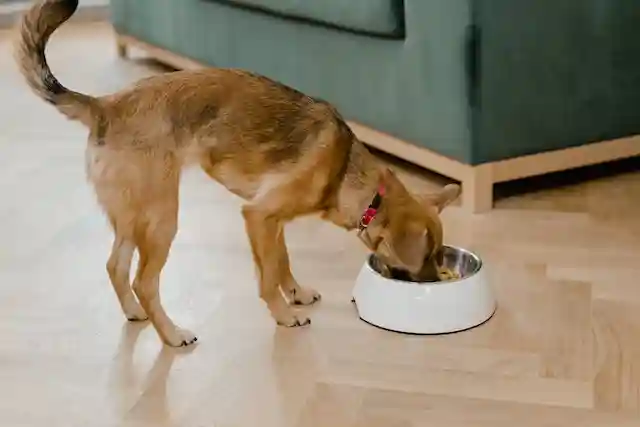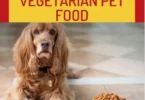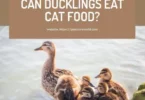When considering our cherished pets, we frequently ponder their nutritional requirements. Among the common queries is whether dogs can eat cat food. In this comprehensive article, we’ll explore the ‘Can dogs eat cat food’ topic in detail, addressing the nutritional differences between cat and dog food, the potential risks of dogs consuming cat food, and provide valuable insights for ensuring the best diet for your canine companion.
As pet owners, we want the best for our furry friends. We care about their health, well-being, and happiness. One question that frequently arises is whether dogs can safely consume cat food. While it might seem tempting, it’s essential to understand the unique dietary requirements of dogs and cats, as well as the potential risks associated with cross-feeding. Let’s delve into the details of ‘Can dogs eat cat food’ topic and find out if it’s safe for dogs to eat cat food.
Can Dogs Eat Cat Food?
Dogs and cats have different nutritional needs. Cat food is specifically formulated to meet the dietary requirements of felines, while dog food is designed for canines. The primary reason behind this difference lies in their respective lifestyles, metabolic rates, and dietary preferences.
Nutritional Differences Between Cat and Dog Food
Cat food typically contains a higher protein content than dog food, as cats are obligate carnivores, meaning they primarily rely on animal-based proteins for their nutrition. On the other hand, dogs are omnivores, which means their diet can include both animal and plant-based foods. Additionally, cat food often contains taurine, an essential amino acid that cats require, but dogs can synthesize on their own.
Risks of Dogs Consuming Cat Food
While an occasional small nibble of cat food might not harm your dog, making it a regular part of their diet can lead to health issues. Some potential risks include:
- Nutritional Imbalance: Cat food doesn’t provide the necessary balance of nutrients that dogs need. Prolonged consumption of cat food can lead to deficiencies in essential vitamins and minerals required for a dog’s overall health.
- Weight Gain: Cat food is often higher in calories, which can contribute to weight gain in dogs if not properly controlled. This is particularly concerning as obesity in dogs can lead to various health problems.
- Digestive Upset: The higher protein content and fat in cat food may cause digestive issues in dogs, leading to diarrhea, vomiting, or other gastrointestinal problems.
- Allergies: Some ingredients in cat food might trigger allergies in dogs, leading to skin problems, itching, and discomfort.
Can Dogs eat dry Cat food?
Yes, dogs can technically eat dry cat food, but it’s not recommended as a regular part of their diet. While an occasional nibble won’t likely harm them, there are several reasons why feeding dry cat food to dogs consistently isn’t ideal:

- Nutritional Imbalance: Cat food is formulated to meet the specific nutritional needs of cats, which differ from those of dogs. Cats are obligate carnivores, requiring higher protein levels and specific amino acids like taurine. Dogs, being omnivores, need a different balance of nutrients, including a mix of animal and plant-based ingredients.
- Calorie Content: Dry cat food is often more calorie-dense than dog food. This can lead to excessive calorie intake and potential weight gain in dogs, especially if they consume it regularly.
- Digestive Upset: The higher protein and fat content in cat food might cause digestive issues in dogs. This can lead to symptoms like diarrhea, vomiting, or upset stomach.
- Allergies: Some ingredients in cat food may trigger allergies in dogs. This can result in skin problems, itching, and discomfort for your canine companion.
- Taurine: Cat food often contains higher levels of taurine, an amino acid that cats cannot produce on their own. While dogs can synthesize taurine, excessive intake may not be suitable for their long-term health.
If you’re considering feeding your dog cat food for any reason, it’s essential to consult with your veterinarian. They can provide guidance based on your dog’s specific needs and recommend a diet that will keep your furry friend healthy and happy. It’s generally best to stick to high-quality dog food that meets your dog’s nutritional requirements.
Ensuring a Healthy Diet for Your Dog
To ensure your dog receives the proper nutrition, it’s essential to feed them high-quality dog food that meets their specific dietary needs. Look for dog food that is labeled as “complete and balanced” by reputable pet food manufacturers. If you’re unsure about which food to choose, consult your veterinarian for personalized recommendations based on your dog’s age, breed, size, and any underlying health conditions.
FAQs about Dogs Eating Cat Food
Is it safe for my dog to eat a small amount of cat food?
Occasional small amounts of cat food are unlikely to harm your dog, but it’s best to avoid making it a regular part of their diet due to the nutritional differences and potential risks.
Can cat food be harmful to dogs in the long run?
Yes, prolonged consumption of cat food can lead to nutritional imbalances, weight gain, digestive issues, and allergies in dogs.
My dog seems to enjoy cat food more. What should I do?
While it’s tempting to indulge your dog’s preferences, it’s crucial to prioritize their health. Focus on providing high-quality dog food that meets their nutritional requirements.
Are there any specific ingredients in cat food that are dangerous for dogs?
Some ingredients in cat food, such as higher levels of certain proteins, may not be suitable for dogs in the long term. It’s best to stick to dog food formulated for their needs.
How can I transition my dog back to dog food if they’ve been eating cat food?
Gradually transition your dog back to its regular dog food by mixing increasing amounts of dog food with decreasing amounts of cat food over a week or two.
Can my dog eat cat treats?
Cat treats should also be avoided. They might contain ingredients that are not suitable for dogs.
Can dogs eat dry cat food?
Yes, dogs can technically eat dry cat food, but it’s not recommended as a regular part of their diet. While an occasional nibble won’t likely harm them.
Conclusion
It’s generally not recommended to feed your dog cat food as their primary diet. The nutritional differences between cat and dog food, along with the potential risks, make it essential to provide your dog with a balanced and appropriate diet. Always consult with your veterinarian to ensure you’re making the best choices for your dog’s health and well-being.







Leave a Comment
You must be logged in to post a comment.